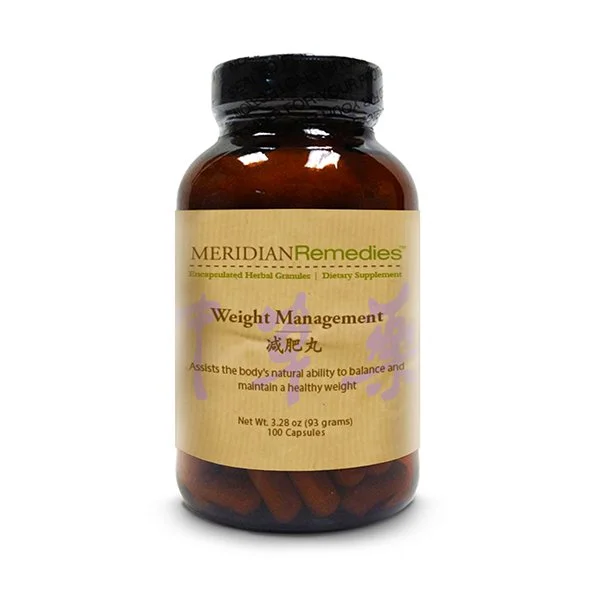Summer is the peak season of yang energy in Traditional Chinese Medicine (TCM)—a time when the body’s natural metabolism is most active. But what if your body still feels heavy, tired, or bloated despite the sunshine?
According to TCM, excess internal dampness can slow your metabolism and lead to stubborn weight gain. That’s why Chinese medicine doesn’t just count calories—it works to balance your constitution and expel dampness, helping your body return to a healthier state.
How TCM Approaches Weight Loss
Weight management in TCM involves more than simply “diet management and more exercises.” It focuses on restoring balance using acupuncture, herbal medicine, and lifestyle support. Key points to keep in mind:
It’s personalized: Every body type is different. TCM treatment must be tailored to your constitution; there’s no one-size-fits-all formula.
Acupuncture + Herbs + Lifestyle: Weight loss is most effective when herbal treatments and acupuncture are combined with dietary and lifestyle adjustments.
Herbal teas help, but can’t replace food: They can support your goals but should never replace meals.
Consult a licensed practitioner: Always work with a professional to find the right formula and avoid adverse effects.
🌿 Herbal Support for Healthy Weight Management
Natural Solutions from Kamwo Herbs
Kamwo offers a thoughtfully curated selection of herbal formulas and teas designed to support your body's natural metabolism, reduce food stagnation, and promote internal balance. These remedies work in harmony with your constitution, helping you manage weight without harsh stimulants or extreme restrictions.
Whether you're aiming to reduce bloating, regulate appetite, or enhance digestion, these gentle yet effective options can complement your overall wellness journey.
-
Function: Assists the body's natural ability to balance and maintain a healthy weight.
Ingredients: Jue Ming Zi (sickie-pod senna seed), Shan Zha (chinese hawthorn fruit), Wu Mei (japanese apricot smoked fruit), Chen Pi (tangerine mature rind), Gan Cao (chinese licorice root), He Ye (sacred lotus leaf)
https://www.kamwo.com/escript/prod/WeightManagement100CapsMeridianRemedies
-
Function: Great for aiding digestion and breaking down food stagnation.
Link: https://www.kamwo.com/escript/prod/HawthornBerriesFatBurningTea
How Acupuncture Supports Weight Loss
Acupuncture stimulates key acupoints to regulate hormones and nervous system functions, reduce appetite, and boost metabolism. (Lu et al., 2022)
Abdominal Acupuncture Points
These points focus on regulating the Middle Jiao (middle burner), harmonizing the Spleen and Stomach, and facilitating Qi and fluid movement.
🦵 Leg Acupuncture Points
These points are essential for transforming dampness, tonifying Spleen and Kidney, resolving phlegm, and promoting Qi and fluid metabolism.
💪 Arm & Hand Acupuncture Points
👂 Auricular Acupuncture Points
Safety & Guidelines
Always consult a licensed TCM practitioner before taking herbs or starting acupuncture.
Herbs must be selected based on your body type—self-medicating may worsen symptoms.
Tea is not a meal replacement; maintain a healthy, balanced diet.
Excessive herbal tea consumption may lead to bloating or diarrhea—use in moderation.
Special care is needed for pregnant women, the elderly, and those with weakened constitutions.
In summary: If you feel like your body is working against you this summer, consider that the issue may not just be food or exercise—but internal imbalances. TCM offers a gentle, holistic way to support your metabolism, improve circulation, and reduce excess dampness. With the right combination of acupuncture, herbs, and lifestyle adjustments, your body can find its natural rhythm again.
-
Lu, P., Chen, Y., Tsai, F., Liao, Y., Huang, H., Yu, W., & Kuo, C. (2022). Combined Acupoints for the Treatment of Patients with Obesity: An Association Rule Analysis. Evidence-based Complementary and Alternative Medicine, 2022, 1–7. https://doi.org/10.1155/2022/7252213
Niu, S., & Ren, L. (2023). Treatment of obesity by acupuncture combined with medicine based on pathophysiological mechanism: A review. Medicine, 102(48), e36071. https://doi.org/10.1097/md.0000000000036071
Shao, J., Li, C., Bai, L., Ni, X., Ge, S., Zhang, J., & Zhao, H. (2022). Recent evidence in support of traditional chinese medicine to restore normal leptin function in simple obesity. Heliyon, 8(5), e09482. https://doi.org/10.1016/j.heliyon.2022.e09482
Wong, A. R., Yang, A. W. H., Li, K., Gill, H., Li, M., & Lenon, G. B. (2021). Chinese Herbal Medicine for Weight Management: A Systematic Review and Meta-Analyses of Randomised Controlled Trials. Journal of Obesity, 2021, 1–17. https://doi.org/10.1155/2021/3250723
Why Choose Kamwo?
At Grand Meridian Clinic, we blend TCM wisdom with modern approaches to uncover and treat the root of your nasal health concerns. Whether it’s through customized herbal therapy, acupuncture, or seasonal care plans, Kamwo is here to support your wellness journey.
Dr. Olivia Choi
L.Ac, DACM, MPH, MSBB, BPharm
Grand Meridian Clinic















